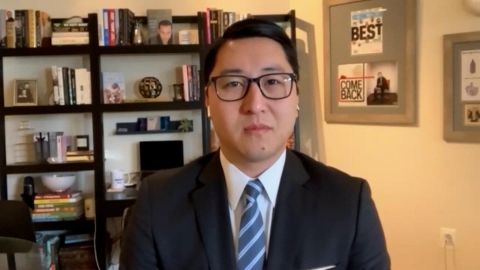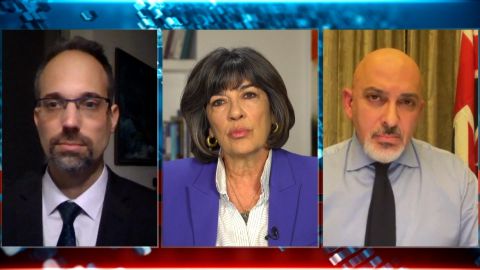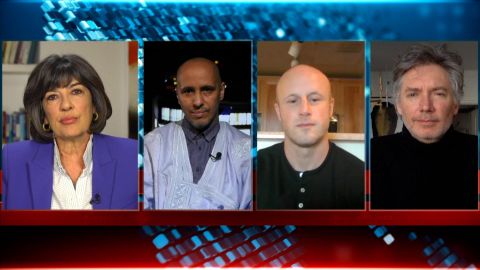Read Transcript EXPAND
CHRISTIANE AMANPOUR: How do you feel now, after all these years? How have you been able to process it, even including in the years since you have been released?
MOHAMEDOU OULD SALAHI, FORMER GUANTANAMO BAY DETAINEE: First, thank you for having me, Christiane, on your amazing program. And I would like to say hi to your audience. And I would like to salute Kevin and Steve, who are your guests. I mean, in one word, I feel amazing. I mean, how many people get to write a bestselling book? And how many people get to have that book translated in about 30 international languages? And how many people get to have that book adapted into a major motion picture hailed by one of the greatest directors who ever lived? And, I mean, it’s amazing. It’s beyond me. It’s just the biggest vindication I could never have imagined. And it’s another proof that the pen can really defeat the sword.
AMANPOUR: It’s quite humbling to hear you, actually, because we know what you went through. We have read it in your book. We have seen it in the film. The torture was really dramatic, the water-boarding, the sexual harassment, assaults, the beatings, the hangings-up, the massively difficult temperature, freezing, and also, obviously, the sound that you were subjected to. I wonder whether Kevin and even Steve, I don’t know what goes through your mind when you hear somebody like Mohamedou say that he feels vindicated and he’s not bearing grudges. Kevin, what prompted you to make this film?
KEVIN MACDONALD, DIRECTOR, “THE MAURITANIAN”: Well, exactly that, exactly what you have said and talking to Mohamedou. I read his book. I was enormously impressed by it, because it should be said that Mohamedou is a born writer. He writes beautifully, even if the subject matter in this case is often so upsetting. But it was really not the book. It was talking to Mohamedou and hearing how he has processed this, and, as you say, this forgiveness. We hear so much about forgiveness, but there aren’t many people, I think — maybe Nelson Mandela is obviously the prime example. But there aren’t many people who have been through such horror and who are able to empathize with their guards and with their captors. And that’s what struck me, is that he is able to think, to put himself in somebody else’s shoes, even if that person is a guard who’s unjustly holding him or torturing him.
About This Episode EXPAND
UK Vaccines Minister Nadhim Zahawi and Ran Balicer, the chair of Israel’s COVID-19 National Experts Panel, explain the keys to successful vaccine distribution. Mohamedou Ould Slahi, Steve Wood and Kevin Macdonald discuss the new film “The Mauritanian.” Former Lincoln Project senior adviser Kurt Bardella joins Hari Sreenivasan to assess the state of the GOP.
LEARN MORE


